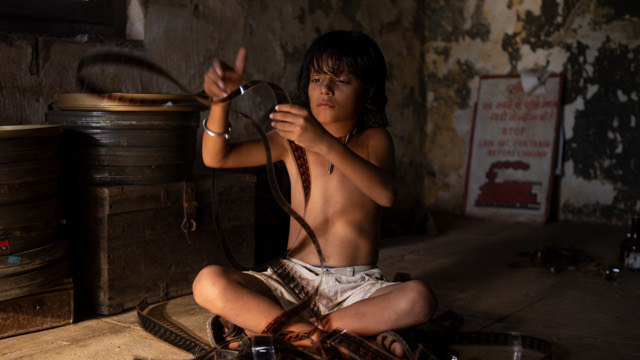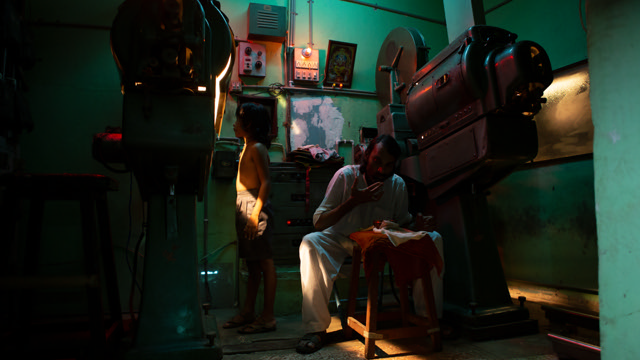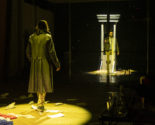The last Film Show
The Successful Passion of a Child
Tribeca Film Festival | New York
How do you recreate the joy of seeing your very first film? Film director Pan Nalin from India, manages to do just this in his masterful feature, The Last Film, premiering at this year’s Tribeca film festival. Nalin’s film is both a stunning love letter to cinema as well as an insightful portrait of a life moulded by a single childhood event, that child’s first visit to a movie theatre.
Set in rural India, the film’s protagonist, Samay is the precocious nine-year-old son of a pious local tea seller, a man who only takes his family to a local cinema because a religious film is being shown there. Once inside though, the effect on Samay is instant, as the boy becomes consumed with the images he sees. It’s not long before the little boy finds ways to avoid attending school all together and instead spends hours at the local cinema. Despite eventually being thrown out by its owner, Samay forms a touching relationship with the cinema’s illiterate projectionist, Fazal, who also finds an unlikely home there. Their friendship allows Samay free admission and is very much the heart of this beautiful film. We watch them form a bond, which momentarily protects them both from the intrusion of the outside world. Palin in interviews often cites the parallels between Samay’s life and his own “Like in The Last Film Show, I was eight or nine years old when I saw my first film. I’d gone with my parents to watch an Indian mythological film. Until then I’d heard about cinema, but I wasn’t very curious. We would hear songs on TV, but it was mainly the popular Bollywood type of entertainment. The film (we saw) was called Jai Dhakshineshwari Kali Maa (Soni, 1996), who is an Indian Hindu Goddess. She takes a ferocious form, with her tongue out and skulls hanging from her. I was blown away, I almost had a Lumière Brothers type of experience. In one moment, I literally hid under the chair. It was a 90- minute to two-hour train ride home. I remember there was complete silence within me. The first line I spoke was to my mother. I told her I wanted to make films.” He goes on to say “In the Indian countryside you’d always talk about who was going to become a doctor or an engineer. Even though I was a child, I can still clearly remember never wanting to do anything else. There wasn’t even the briefest thought of doing something else.”
Watching the film, you can clearly see Palin’s cinema influences from Russian master Andrei Tarkovsky, to Italian legend Giuseppe Tornatore, whose Cinema Paradiso, The Last Film Show most resembles. Both films share a narrative which illustrates an individual’s love affair with cinema. But although they share a similar story, The Last Film Show is distinct and tells this story in its own unique way. Where Cinema Paradiso is very much about the love of watching films, The Last Film Show is about the birth of a filmmaker. Samay’s love affair with cinema may have started with him falling in love with the moving images he sees, but he quickly moves on to wanting to create his own. Even at the tender age of nine, Samay knows exactly how he wants to spend the rest of his life. The struggle he then faces though is how to convince a religiously pious father, that this is indeed a respectable occupation.
The Last Film Show explores many themes not simply the love of cinema but also our ability to form our own extended families. The moving friendship between Samay and Fazal is beautiful to behold as is Samay’s relationship with his fellow students, who follow his lead and work together to help him create (with film footage stolen from discarded films) his very own film.
It also explores the theme of father and son relationships. We watch while Samay’s uncomprehending father evolves from firm disapproval to one with new found admiration and respect for his unique, determined young son.
Has the tiny cinema moves from screening celluloid to showing digital films it’s as if we are watching the ending of a chapter of film history but Nalin also reminds us that we are watching something else, the birth of a great filmmaker.
form-idea.com London, 25th July 2021.




